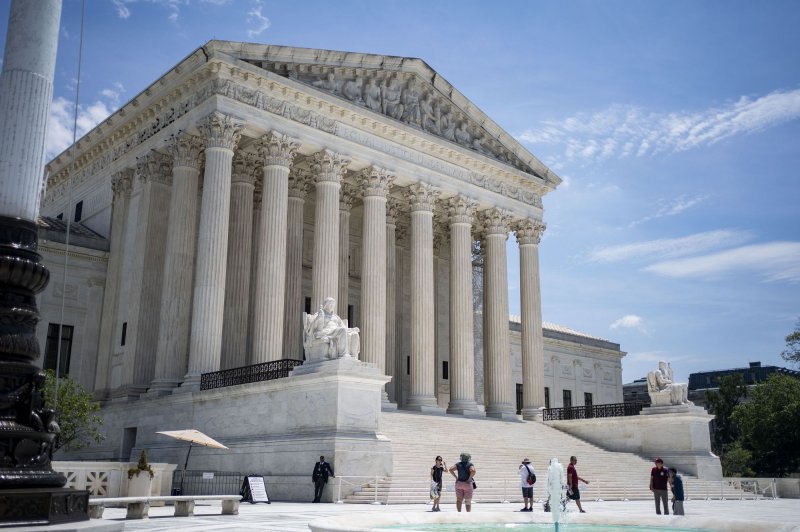A Supreme Court decision inadvertently shared early online Wednesday would reject an appeal seeking to block Idaho from allowing emergency abortions. Photo by Bonnie Cash/UPI. |
License Photo
June 27 (UPI) -- After inadvertently releasing its decision a day earlier, the Supreme Court on Thursday officially dismissed an appeal connected to Idaho's abortion ban, preventing it from being enforced until it the case is heard in the lower courts.
The decision was briefly posted on the Supreme Court's website before it was removed on Wednesday, as a spokesperson confirmed it was released "inadvertently." It revealed a 5-4 ruling not to intervene in an injunction against Idaho's abortion law.
President Joe Biden praised the dismissal, even if it provided relief only until the lower courts can hear the case.
"Today's Supreme Court order ensures that women in Idaho can access the emergency medical care they need while the case returns to the lower courts," Biden said in the White House statement. "No woman should be denied care, made to wait until she's near death, or forced to flee her home state just to receive the healthcare she needs."
Idaho's Attorney General Raul Labrador said that the court did allow most of the law to take effect and that he believes once heard, the full law will be implemented.
"After listening to the [Justice Department's] best argument to defend the Biden administration's legally untenable position, that Idaho's Defense of Life Act is not preempted by [federal law] and will be vindicated in full," he wrote in a statement.
The court for the first time weighed in on a state's abortion ban since it struck down Roe vs. Wade in 2022. It upheld a lower court's injunction asked for by the Biden administration to stop the state from barring emergency abortions.
The White House argued that Idaho's abortion ban, one of the most restrictive in the country, is at odds with the federal Emergency Medical Treatment and Labor Act. That law requires hospitals that receive Medicare and Medicaid to give stabilizing treatment, including an abortion, when there is an imminent threat to a patient's life or health.
Justice Samuel Alito wrote a dissent, joined by fellow conservatives Clarence Thomas the Neil Gorsuch, arguing that the court should have taken the case.
Liberal Justice Ketanji Brown Jackson, wrote separately, saying also the court should have accepted the case to answer the larger question about the conflicting laws because the decision would affect numerous other states and their abortion bans.
"While this court dawdles and the country waits, pregnant people experiencing emergency medical conditions remain in a precarious position as their doctors are kept in the dark about what the law requires," Brown wrote in the draft.















